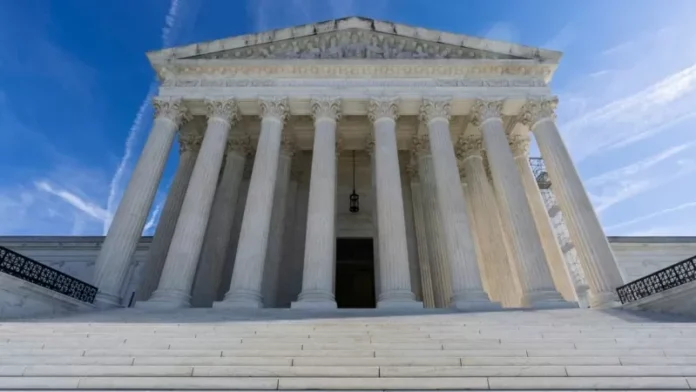Washington — On Friday, the Supreme Court unanimously upheld the federal law banning TikTok unless it is sold by its Chinese parent company, citing national security concerns over limiting speech and the app’s 170 million users in the United States.
The decision, which will take effect on Sunday, has sparked political turmoil between President-elect Donald Trump and his own administration, with President Joe Biden signaling that the law will not be enforced on his last full day in office. Trump, who has 14.7 million followers on the app, finds himself at odds with prominent Senate Republicans who blame TikTok’s Chinese owner for not finding a buyer sooner.
It remains unclear what options Trump will have once he is sworn in on Monday. The law allows for a 90-day pause in the restrictions if progress is made towards a sale before it takes effect. However, Solicitor General Elizabeth Prelogar, who defended the law at the Supreme Court on behalf of the Biden administration, stated that it is uncertain whether a potential sale after the law is in effect could trigger a 90-day respite for TikTok.
During the court proceedings, a lawyer for TikTok and its parent company, ByteDance Ltd., emphasized the difficulty of finalizing a deal, especially since Chinese law restricts the sale of the proprietary algorithm that has made the app so successful. The app’s addictive nature has also been the subject of lawsuits, with states like Kentucky claiming that it harms children’s mental health. TikTok has denied these allegations.
The dispute over TikTok’s ties to China has become a symbol of the ongoing geopolitical competition between the US and China. The US has expressed concerns about the app collecting vast amounts of user data, including sensitive information, that could potentially be accessed by the Chinese government. Officials have also warned that the algorithm used by the app could be manipulated by Chinese authorities to shape content on the platform without detection.
TikTok, on the other hand, has pointed out that the US has not presented any evidence of China attempting to manipulate content on its US platform or gather American user data.
In April, bipartisan majorities in Congress passed legislation, which was then signed into law by President Biden. This was the culmination of a years-long saga in Washington over TikTok, which the government sees as a national security threat.
TikTok, which had previously sued the government over the law, has consistently denied allegations that it could be used as a tool by Beijing. In December, a three-judge panel unanimously upheld the law, prompting TikTok to quickly appeal to the Supreme Court.
Without a sale to an approved buyer, the law will prohibit app stores operated by Apple, Google, and others from offering TikTok starting on Sunday. Internet hosting services will also be barred from hosting the app.
ByteDance has stated that it has no intention of selling TikTok. However, there have been potential buyers, including Trump’s former Treasury Secretary Steven Mnuchin and billionaire businessman Frank McCourt. McCourt’s Project Liberty initiative, which includes “Shark Tank” host Kevin O’Leary, has made a proposal to acquire TikTok’s US assets, although the financial terms of the offer have not been disclosed.
During the court proceedings, Prelogar suggested that the law taking effect could potentially persuade ByteDance to reconsider its position.
The decision by the Supreme Court to uphold the ban on TikTok has once again brought attention to the ongoing tensions between the US and China. It also highlights the growing concern over the security of user data and the potential for foreign governments to manipulate social media platforms.
However, the fate of TikTok in the US remains uncertain. With the Biden administration signaling a different approach to the issue, it is possible that the ban may not be enforced. In the meantime, TikTok’s fate hangs in the balance as the app’s popularity continues to soar among its millions of users.

